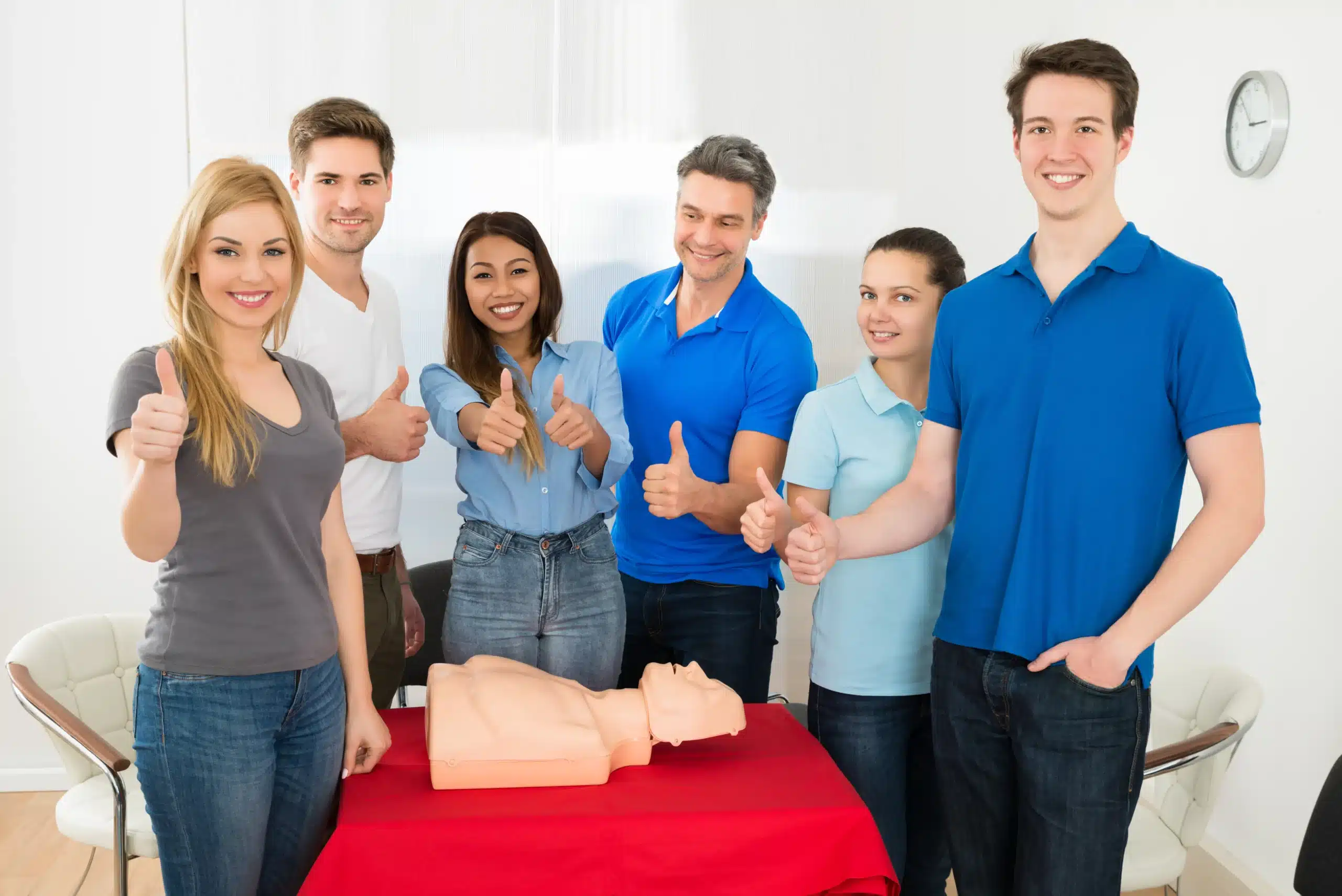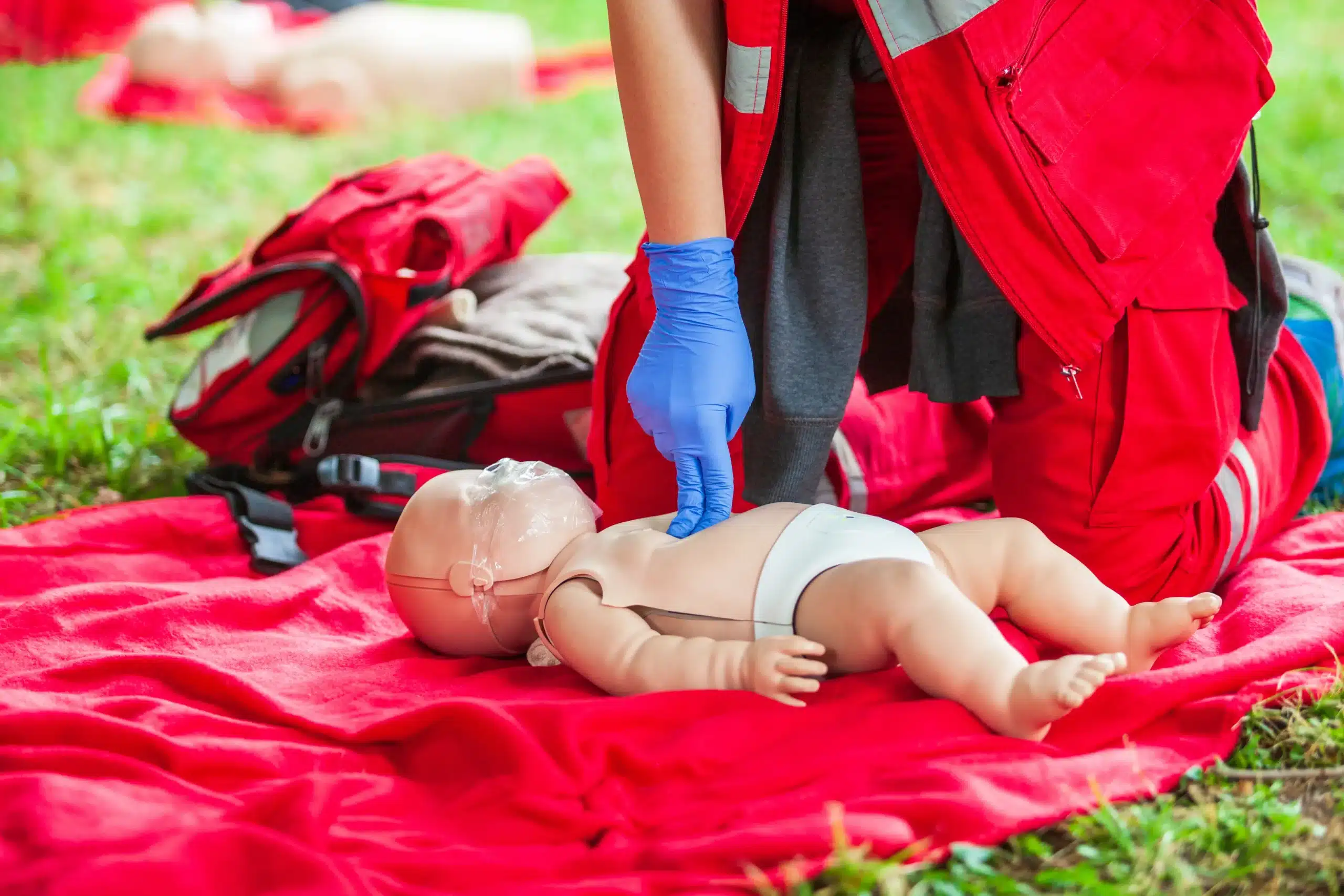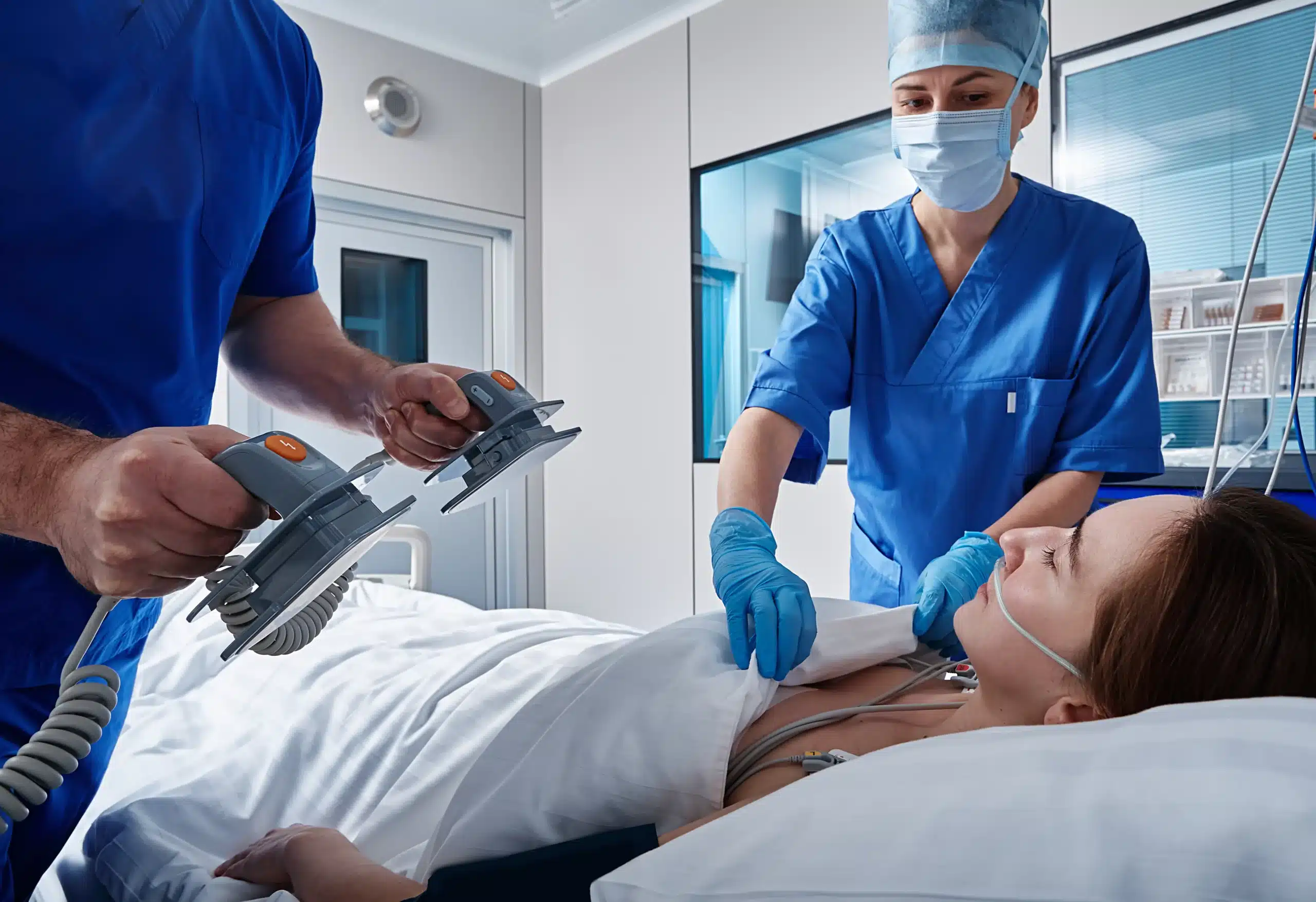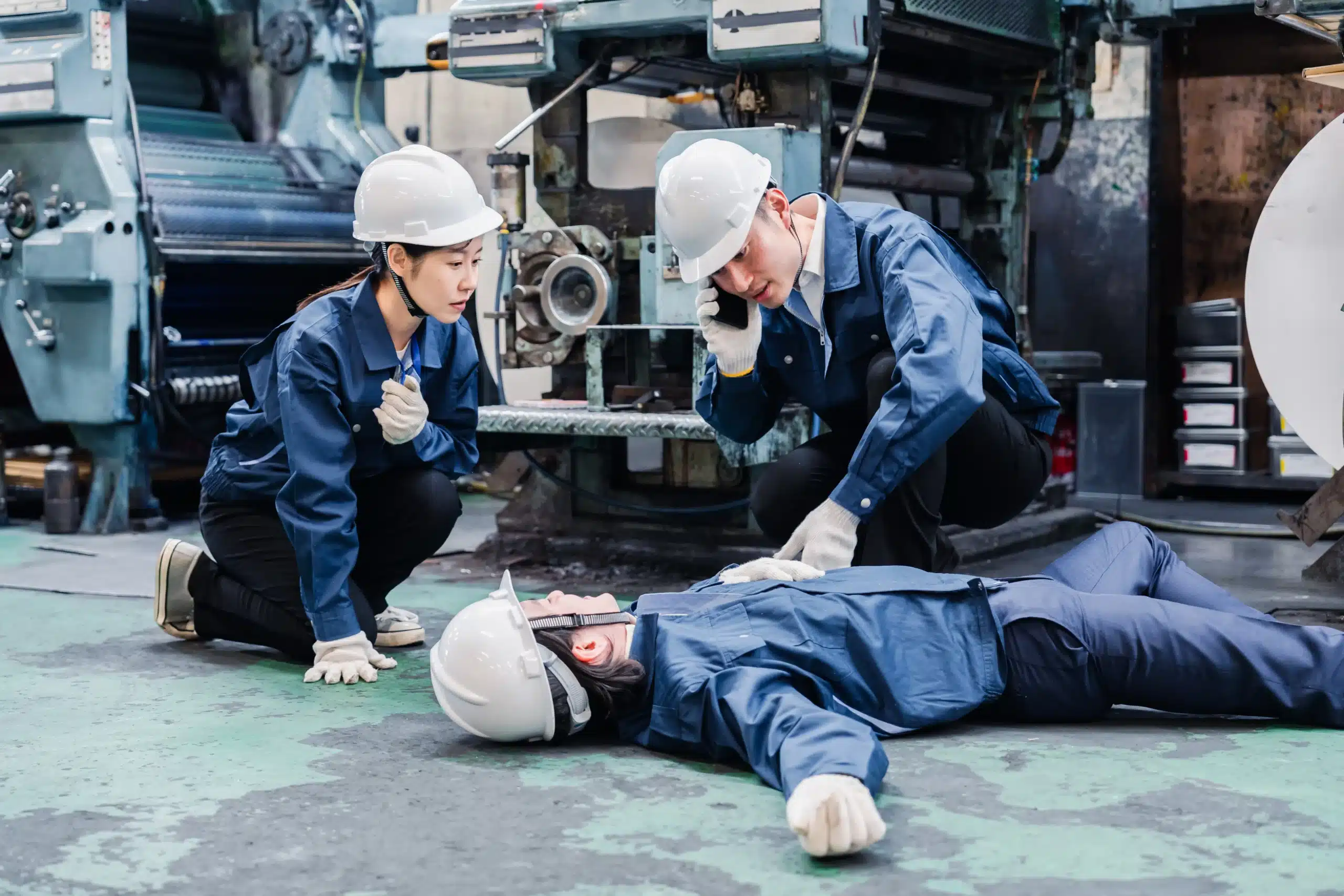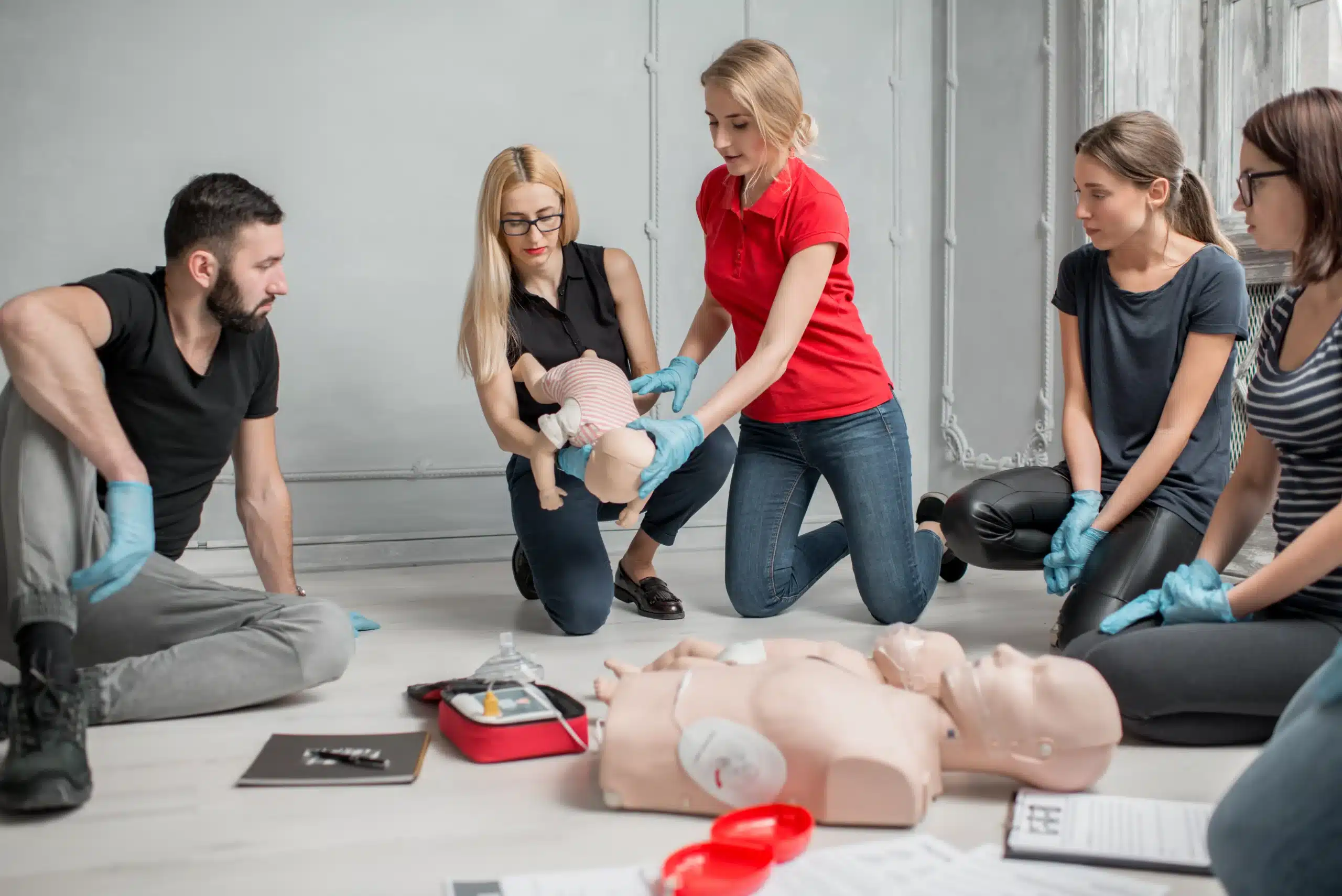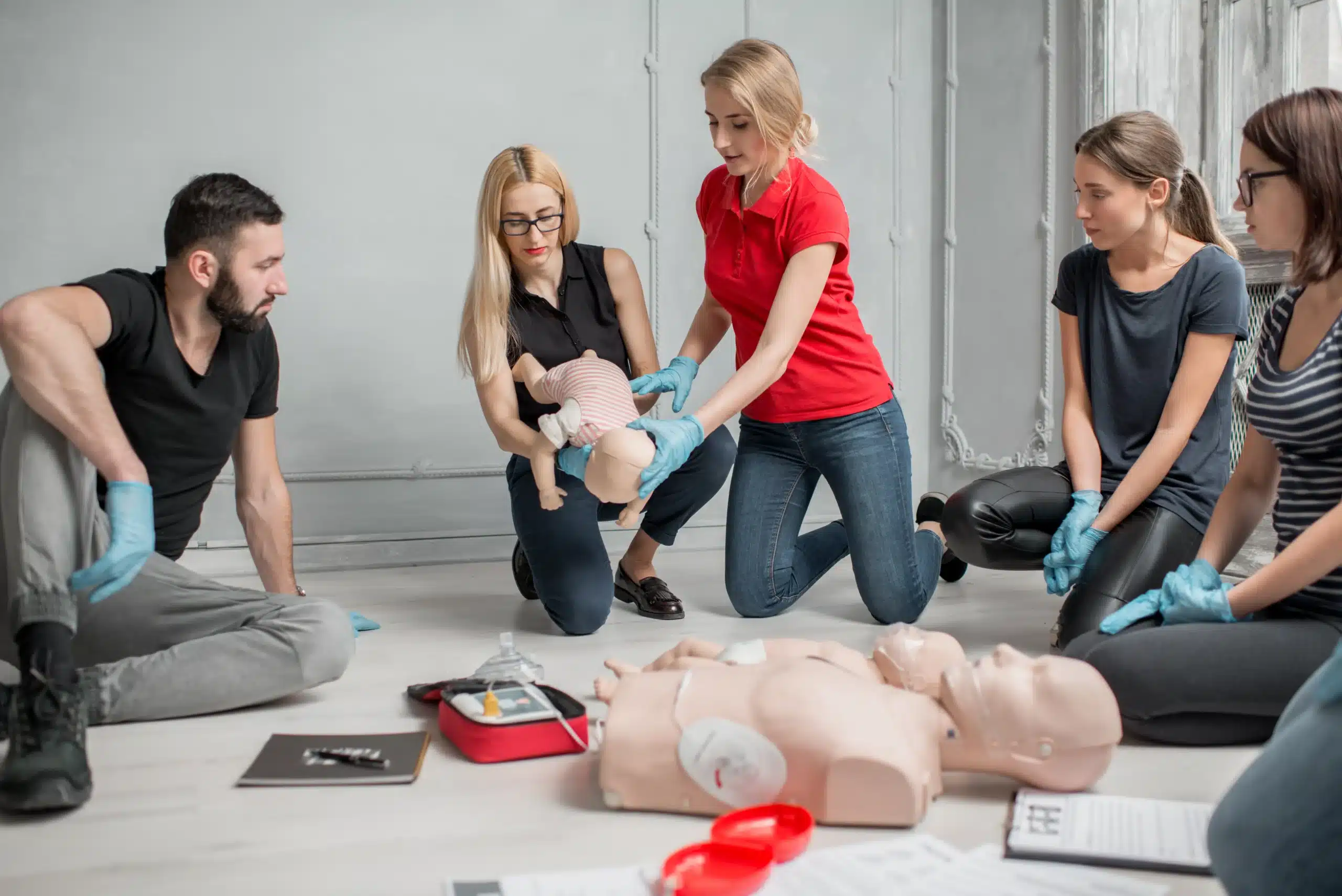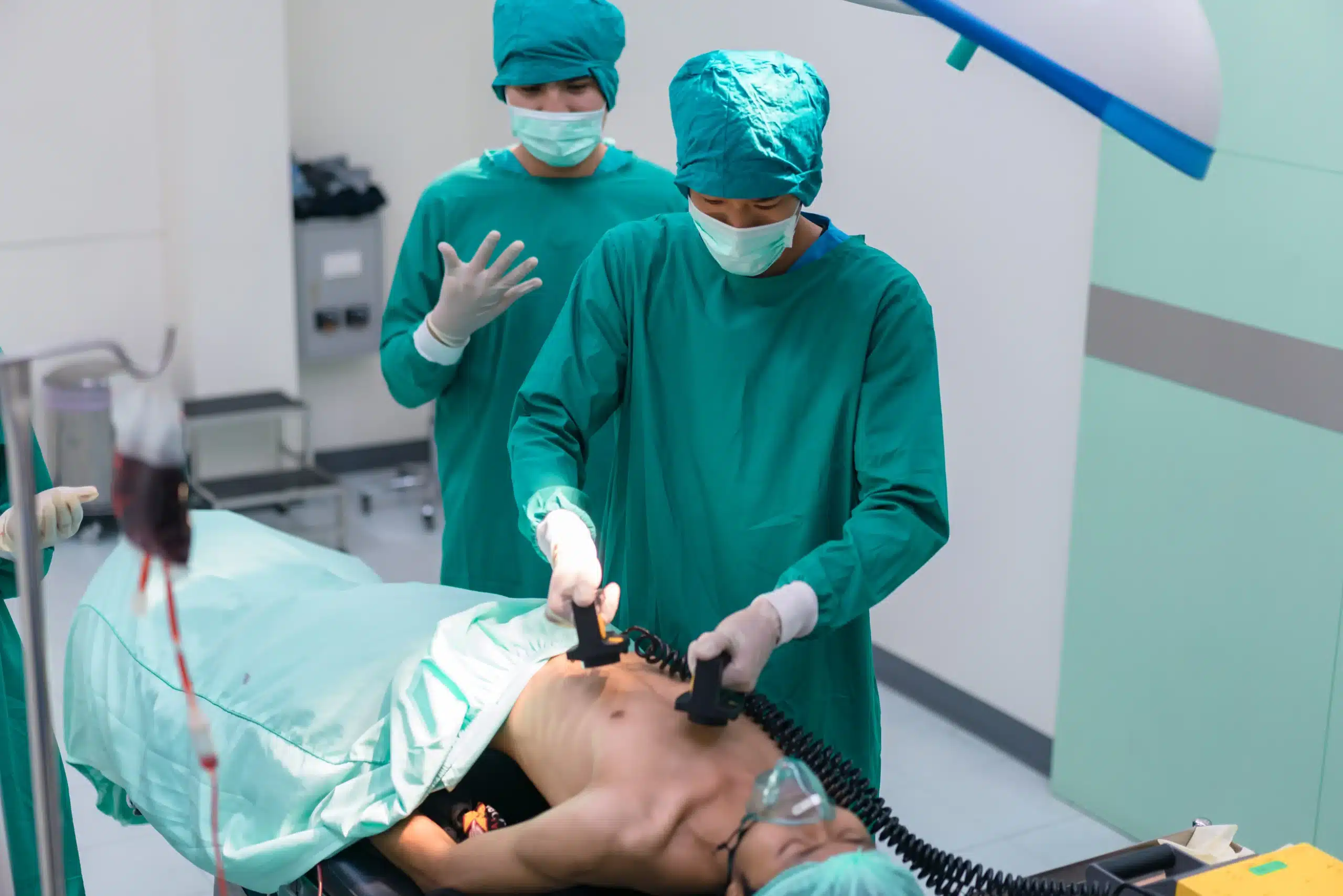Keeping your CPR skills sharp is a non-negotiable part of working in healthcare, but traditional training methods often fall short. They can be time-consuming, inflexible, and difficult to fit into already demanding schedules. RQI in Santa Clara offers a refreshing alternative. This dynamic program, developed by the American Heart Association, emphasizes short, frequent practice sessions and personalized feedback, ensuring that your skills stay fresh and you’re always ready to respond. This article explores how RQI is revolutionizing CPR training in Santa Clara, making it easier than ever for healthcare professionals to maintain their certifications and provide top-tier patient care.
Key Takeaways
- RQI modernizes CPR training: Blended learning and shorter, more frequent practice sessions make it easier to fit crucial training into busy schedules.
- Real-time feedback improves skills: Personalized feedback and simulation exercises help healthcare providers refine their technique and build confidence.
- RQI saves time and money: The flexible program minimizes workflow disruption and reduces training costs compared to traditional CPR courses.
What is RQI and How Does It Transform CPR Training?
RQI (Resuscitation Quality Improvement) is a revolutionary program designed to improve CPR competency and proficiency among healthcare professionals. It’s a significant departure from traditional CPR training methods, offering a more modern, flexible, and effective approach. Let’s explore how RQI is changing the landscape of CPR education.
CPR Training’s Evolution
Traditional CPR courses often involve lengthy, infrequent sessions. While valuable for foundational knowledge, studies show that CPR skills can deteriorate quickly without regular practice. This skill decay poses a risk to patient outcomes. RQI addresses this challenge by shifting from infrequent training to a continuous quality improvement model. Developed by the American Heart Association, RQI emphasizes frequent, short practice sessions to maintain and enhance CPR skills, ensuring healthcare providers are always ready to respond effectively in emergencies. Learn more about our RQI program and its benefits for healthcare professionals.
RQI’s Key Features
RQI offers a flexible and convenient way to stay up-to-date with CPR certifications. The program combines online learning modules with short, hands-on skills sessions using simulation stations. This blended learning approach helps providers fit training into busy schedules. Real-time feedback from the simulation stations helps learners identify areas for improvement and refine their technique. This personalized approach ensures targeted training based on individual needs. Explore our flexible training options to see how RQI makes maintaining skills and certifications easier.
RQI vs. Traditional CPR
Unlike traditional CPR training, which often relies on infrequent, large-group sessions, RQI uses low-dose, high-frequency training: shorter, more regular practice sessions that reinforce skills and improve retention. RQI’s simulation technology provides immediate feedback, allowing providers to correct errors and refine their technique in real-time. This personalized feedback is a key advantage over traditional methods, which may not offer the same level of individual attention. While traditional CPR courses are still valuable for building a foundation, RQI takes CPR training to a new level of proficiency.
Common RQI Misconceptions
One common misconception is that RQI replaces traditional CPR certification. Instead, RQI complements and enhances traditional training by providing a platform for ongoing practice and improvement. It’s not a one-time course but a continuous learning system. Another misconception is that RQI is overly complex or time-consuming. The program is designed for efficiency and adaptability, fitting seamlessly into busy healthcare settings. The short, frequent sessions minimize disruption and keep skills sharp. Learn more about how RQI can benefit your team by exploring our available courses in Milpitas, San Jose, and Santa Clara.
RQI Programs Available in Santa Clara
Santa Clara healthcare providers can access several RQI programs designed for different needs and specialties. These programs blend online learning with short, frequent skills sessions, making staying current on your certifications easier. Let’s look closer at the specific RQI disciplines available in Santa Clara:
Basic Life Support (BLS)
The American Heart Association RQI program is the most efficient way for Santa Clara medical professionals to earn their official American Heart Association BLS certification cards. This program suits those new to healthcare or needing a refresher on essential life support techniques. It covers skills like CPR, recognizing life-threatening emergencies, and basic airway management.
Advanced Cardiac Life Support (ACLS)
RQI changes how healthcare professionals maintain their ACLS certification. The flexible training accommodates busy schedules, letting providers complete online modules and skills sessions when convenient. ACLS training through RQI covers advanced techniques for managing respiratory and cardiovascular emergencies, including rhythm recognition and pharmacology.
Pediatric Advanced Life Support (PALS)
The American Heart Association RQI program prepares participants with the knowledge and skills to provide advanced life support tailored to pediatric patients. PALS training covers various topics, from recognizing and responding to respiratory distress and shock to managing cardiac emergencies in infants and children.
Neonatal Resuscitation Program (NRP)
The RQI NRP program is crucial for healthcare professionals working with newborns. This program uses the latest science to help providers improve their skills and confidence in neonatal resuscitation. It focuses on stabilizing and resuscitating newborns in critical situations.
Why Choose RQI for Your Santa Clara Healthcare Organization?
RQI offers compelling advantages for healthcare organizations, focusing on flexibility, data-driven improvement, and enhanced performance. Let’s explore why RQI could be the right fit for your Santa Clara facility.
Cost-Effectiveness and Flexible Scheduling
Traditional CPR training often requires significant time away from work, impacting staffing and productivity. RQI’s flexible approach changes that. The program combines convenient online learning with short, frequent in-person skills sessions, fitting easily into busy schedules. This blended learning model minimizes disruption and reduces the overall cost associated with traditional classroom-based training. You can maintain certifications more efficiently, saving your organization valuable time and resources. Learn more about how RQI works in Milpitas.
Improve Skill Retention and Performance
Consistent practice is key to maintaining proficiency in any skill, especially CPR. RQI recognizes this and provides regular practice opportunities using simulation stations and real-time feedback. This approach helps healthcare providers not only maintain but actually improve their CPR skills, leading to increased confidence and better performance in real-life emergencies. For more details, explore how RQI helps improve CPR skills.
Data-Driven Insights for Better Outcomes
RQI stands out as a data-driven program that verifies skills competence and offers valuable insights for organizational improvement. This data allows you to track performance, identify areas for growth, and demonstrate compliance with training standards. By leveraging these insights, your organization can make informed decisions to enhance CPR quality and patient outcomes. Explore the performance improvement programs offered by RQI.
Integrate RQI with Work Hours
Integrating training into already packed work schedules can be a challenge. RQI addresses this by offering a blend of online learning and brief, in-person skills sessions. This makes it easier for your team to get and maintain their certification without disrupting their workflow. The flexibility of RQI allows you to seamlessly incorporate training into existing schedules, minimizing downtime and maximizing efficiency. Learn more about how RQI integrates with busy schedules in nearby San Jose.
Real-Time Feedback and Performance Improvement
RQI provides real-time audio/visual feedback during skills training and assessment. This immediate feedback helps ensure high-quality CPR performance by allowing participants to correct errors and refine their technique as they practice. This focus on continuous improvement leads to greater confidence and better outcomes. Review the RQI program overview for more information.
Ensure Quality and Effectiveness in RQI Training
RQI training offers a new approach to CPR education, but how can you ensure its quality and effectiveness within your Santa Clara healthcare organization? Here’s how to maximize the benefits of RQI.
Continuous Learning Approach
RQI’s flexible training adapts to busy schedules. Unlike traditional CPR courses, RQI uses a blended learning model. This combines online learning with short, frequent skills sessions, making it easier to stay current on your certifications. You can fit these sessions into your workday, minimizing disruptions to patient care. This approach ensures that knowledge and skills remain fresh, leading to better outcomes in real-life emergencies.
Track Performance and Analyze Data
RQI is a data-driven program designed to verify the skills competence of healthcare workers and provide insights for organizational improvement. This data-driven approach allows you to identify areas of strength and weakness within your team. You can then use this information to tailor training and improve overall performance.
Align with AHA Guidelines
The American Heart Association (AHA) recognizes RQI as a valid method for healthcare professionals to receive their official AHA BLS, ACLS, and PALS certifications. This alignment ensures your team meets the highest standards of resuscitation care.
Realistic Simulations and Technology Integration
RQI simulation stations provide realistic training scenarios with real-time feedback. Practicing on these stations helps participants maintain and improve their compression and ventilation skills. This hands-on experience translates to greater confidence and competence during actual emergencies.
Address Skill Decay with Frequent Practice
Traditional CPR training often leads to skill decay over time. RQI combats this with its frequent practice sessions. Regular practice with RQI’s simulation stations and real-time feedback helps healthcare providers maintain and improve their CPR skills. This consistent reinforcement ensures that your team is always ready to respond effectively.
Implement RQI in Your Santa Clara Facility
Implementing RQI in your Santa Clara facility is straightforward. This section walks you through the steps to get your team started and maintain a successful program.
Get Started with RQI
RQI offers a blended learning approach, combining online coursework with short, frequent hands-on skills sessions. This flexible format makes it easier for your team to fit training into their busy schedules. Begin by identifying an RQI program administrator within your facility. This person will manage the program and coordinate training. Then, reach out to Milpitas CPR Classes to discuss your facility’s needs and schedule a consultation. We can help you determine the right mix of online modules and in-person training for your staff.
Training Requirements and Schedules
The American Heart Association’s RQI program streamlines the certification process for BLS, ACLS, and PALS. RQI uses short, frequent skills sessions, often referred to as low-dose high-frequency training. This approach helps healthcare providers in Santa Clara maintain their skills and stay current on their certifications. Contact us to learn more about the specific requirements for each certification level. We offer flexible scheduling to accommodate your team’s availability, minimizing disruption to patient care. You can find more information on our BLS, ACLS, and PALS courses on our website.
Available Support and Resources
RQI provides comprehensive support and resources to ensure your program’s success. The program includes three key components: cognitive (online learning), psychomotor skills (hands-on practice), and performance feedback. During skills sessions, students receive real-time audio/visual feedback, allowing them to refine their technique and build confidence. Ongoing support from Milpitas CPR Classes and access to the RQI platform ensure your team has the resources they need.
Overcome Implementation Challenges
One common concern about implementing new training programs is the potential disruption to workflow. However, RQI’s flexible format allows staff to complete training in short bursts, minimizing interruptions. Studies show that regular practice with RQI’s simulation stations and real-time feedback improves CPR skills and provider confidence. As part of the RQI community, your facility will also have access to program updates and scientific advancements from the AHA. For more insights on successful RQI implementation, read this case study on how one hospital improved CPR performance and reduced training costs.
RQI Pricing and Subscriptions in Santa Clara
Subscription Model Overview
The RQI program, offered by the American Heart Association (AHA), uses a subscription model. This approach is designed to combat the rapid decline of CPR skills after initial training. Unlike traditional CPR certification courses that often require renewal every two years, RQI emphasizes short, frequent skills sessions combined with online learning. This flexible approach makes it easier for healthcare professionals to maintain their certifications, even with demanding schedules. You can learn more about the benefits of this modern approach to CPR training in our guide to RQI in Milpitas.
Customize for Different Facility Sizes
RQI Partners, the service provider for these innovative programs, understands the unique needs of various healthcare facilities. They combine the latest resuscitation science with cutting-edge simulation technology, ensuring high-quality CPR skills maintenance. Whether you’re a small clinic or a large hospital system, RQI programs can be tailored to fit your specific requirements. Explore the range of programs designed to improve resuscitation performance.
Request a Quote or Demo
Curious about how RQI can work for your team in Santa Clara? The best way to understand the specific costs and benefits is to request a personalized quote or schedule a demo. This allows you to explore the program’s features, discuss your organization’s needs, and get a clear understanding of the pricing structure. Contact us to learn more about RQI and how it can transform your CPR training.
Potential Cost Savings
One of the compelling advantages of RQI is its potential for significant cost savings compared to traditional BLS training. A study highlighted how one community hospital reduced their training costs by nearly 50% annually after implementing the RQI program. This cost reduction, coupled with improved CPR performance, makes RQI a financially sound investment for healthcare organizations. Read more about how RQI can impact your bottom line in this case study.
Address Santa Clara’s Healthcare Challenges with RQI
Santa Clara’s healthcare providers face unique challenges—high demand, staffing shortages, and the constant need to maintain top-notch skills. RQI rises to meet these challenges, offering a practical and efficient way to maintain crucial certifications and elevate the quality of patient care. Let’s explore how RQI tackles these hurdles.
Meet Certification Requirements Efficiently
The American Heart Association RQI (Resuscitation Quality Improvement) program offers the most efficient way for medical professionals in Santa Clara to get their official American Heart Association BLS, ACLS, and PALS certifications. It’s the modern, streamlined approach to maintaining these essential qualifications. No more scrambling to fit traditional renewal courses into an already packed schedule. RQI allows providers to meet their requirements quickly and effectively.
Enhance Provider Confidence and Competence
Regular practice is key to maintaining proficiency in any skill, especially life-saving ones like CPR. RQI’s simulation stations and real-time feedback help Santa Clara healthcare providers not only maintain their skills but actually improve them. This consistent reinforcement builds confidence and competence, empowering providers to respond effectively in critical situations. This translates to better outcomes for patients and a more confident team.
Improve Patient Outcomes Through Regular Training
High-quality CPR is directly linked to improved patient outcomes. The RQI program focuses on three key training components: cognitive learning, hands-on psychomotor skills practice, and personalized performance feedback. This comprehensive approach ensures that healthcare providers receive well-rounded training, leading to more effective CPR delivery and ultimately, better patient care.
Adapt to Busy Healthcare Schedules
We know how demanding healthcare schedules can be. RQI’s flexible structure combines online learning with short, frequent skills sessions, making it easier to stay current on certifications, even with a busy lifestyle. This adaptable approach fits seamlessly into existing workflows, minimizing disruption and maximizing convenience for Santa Clara healthcare providers. Learn more about convenient RQI training in nearby Milpitas.
Related Articles
- Pediatric CPR & First Aid Classes in San Jose – Milpitas CPR Classes
- CPR Certification in San Jose: Your Complete Guide – Milpitas CPR Classes
- RQI in Milpitas: Your Guide to CPR Certification – Milpitas CPR Classes
- Why CPR Is Vital in Healthcare & How to Get Certified
- CPR Training in Santa Clara: A Complete Guide – Milpitas CPR Classes
Frequently Asked Questions
How does RQI differ from traditional CPR training?
RQI uses a “low-dose, high-frequency” model, meaning shorter, more frequent practice sessions compared to traditional CPR courses. This helps maintain skills over time. It also integrates online learning with hands-on practice and provides real-time feedback, personalizing the learning experience. Traditional CPR training is usually a one-time course, while RQI is an ongoing system of skill improvement.
Is RQI more expensive than traditional CPR courses?
RQI operates on a subscription basis, which may seem like a recurring cost. However, the flexible scheduling and reduced time commitment can lead to significant long-term savings. Traditional CPR training often involves travel, time away from work, and the need for refresher courses, which can add up. RQI’s blended learning approach minimizes these expenses.
What if I’m already CPR certified? Do I still need RQI?
Even if you’re currently certified, RQI can enhance your skills and keep them sharp. Studies show CPR skills decline quickly without regular practice. RQI helps prevent this skill decay and ensures you’re always ready to respond effectively in an emergency. It complements your existing certification by providing ongoing practice and improvement.
How can I integrate RQI into my busy schedule?
RQI is designed for busy professionals. The online modules can be completed at your own pace, and the short skills sessions can be scheduled conveniently. This blended learning approach allows you to fit training around your existing commitments, minimizing disruption to your workflow.
Where can I access RQI training in Santa Clara?
Milpitas CPR Classes offers a range of RQI programs in the Santa Clara area. Contact them directly to discuss your specific needs and schedule a consultation or demo. They can help you choose the right program and create a training plan that works for you and your team.
